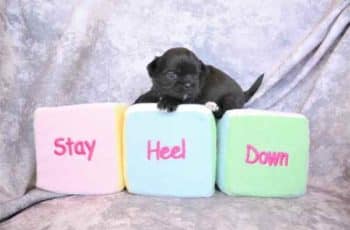
A dog who won’t eat is probably sick. If he has vomiting and diarrhea, a short fast may be all he needs to let his gastrointestinal tract settle before he starts eating again. A short fast of 12 hours may do the trick, provided he’s drinking water. If he’s not drinking water, call your veterinarian.
Consider offering small meals frequently. Some dogs will appreciate you offering spoonsful of food or holding up their bowl for them. Variety can be appealing.
Most sick dogs do best with a bland diet. Top choices include:
- Cooked chicken breast with cooked rice. This is perhaps the most tempting food for dogs who don’t feel well. No butter, spices, or anything when making the chicken and rice.
- Oatmeal works for some dogs. Cook his rolled oats with water and nothing else. Oatmeal has plenty of fiber, which can help with diarrhea, and lots of B vitamins.
- Plain mashed potatoes. These are another favorite of sick dogs who aren’t eating well, but skip the butter, milk, and seasonings.
- Smelly canned mackerel. This may do the trick, especially if the dog is having a respiratory issue and can’t smell his food.
- Canned cat food. While you don’t want your dog on a steady diet of cat food, some small offerings are smelly and tasty. For short-term use, these are fine, but check with your veterinarian to be sure your dog can handle the high protein and fat content of many cat foods, especially if he has a history of pancreatitis.
Dog Sniffs and Walks Away
Very often a sick dog will walk over, sniff the food, and walk away. This could be from nausea, or he may not be able to smell well. Ask your veterinarian for medications if you think he is nauseous. Drooling and your dog’s facial expression are clues to nausea.
If he has a respiratory infection, keep your dog’s nose clean. Use warm compresses to loosen any crusts. Make his food savory by warming it carefully and/or adding a good smelling topping.
In the case of a respiratory infection, the bland foods listed above may need some smelly toppings. Low-sodium broth works well and will help with hydration. The juice from a can of tuna packed in water also adds plenty of aroma.
Talk with Your Veterinarian
If none of your efforts work, and the dog hasn’t eaten for 12 to 24 hours or missed two meals, call your veterinarian, who will want to determine what the cause and may prescribe an appetite stimulant if needed.


